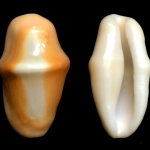As followup to this post, I will discuss what biogeography is. Largely, biogeography can be seen as subdisipline of the fields of ecology and evolution. Biogeography has traditionally been the study of the distribution of species across the globe, why a species occurs or does not occur in a given locality. As ranges of organisms overlap, an understanding of distributions then encompasses diversity or the number of organisms in a location. Modern biogeography includes any pattern of any geographic variation, body size, diversity, morphology, gene frequencies, in any ecosystem-such as the deep sea (see next post). As such you can easily see how biogeography speaks to the anthropogenic effects of climate changes on fauna and flora of the world. One of the best popular books dealing with biogeography is The Song of the Dodo.
Lomolino, Riddle, and Brown provide an excellent list of questions that are typical of those asked by biogeographers
- Why is a species or high taxonomic group confined to its present range?
- What enables a species to live where it does, and what prevents it from colonizing other areas?
- What role does geographic variation in climate, topography, and interactions with other organisms play in limiting the distribution of species?
- How do different kids of organisms replace each other as we go up a mountain or move from a rocky shore to a sandy beach nearby?
- How does a species come to be confined to its present range?
- What are a species’ closet relatives, and where can they be found? Where did its ancestors live?
- How have historical events-such as continental drift, Pleistocene glaciation, and recent climate change-shaped a species’ distribution?
- Why are animals and plants of large, isolated regions-such as Australia, New Caledonia, and Madagascar-so distinctive?
- Why are some groups of closely related species confined to the same region, while others are found on opposite sides of the world?
- Why are there so many more species in the tropics than at temperate or arctic latitudes?
- How are isolated oceanic islands colonized, and why are there always fewer species on islands than in the same kinds of habitats on continents?





Hmm. So far, so good. Does biogeography also address how various ecosystems alter or stabilize the landscape?
No this would really be more encompassed by ecosystem or landscape ecology
Just wanted to throw my 2 cents in about The Song of the Dodo – it really is an excellent read – a really nice job of explaining the historical, cultural, and scientific details of biogeography and its relationship to evolution. Its a big book, filled with lots of infomation, but it is also entertaining and well written.